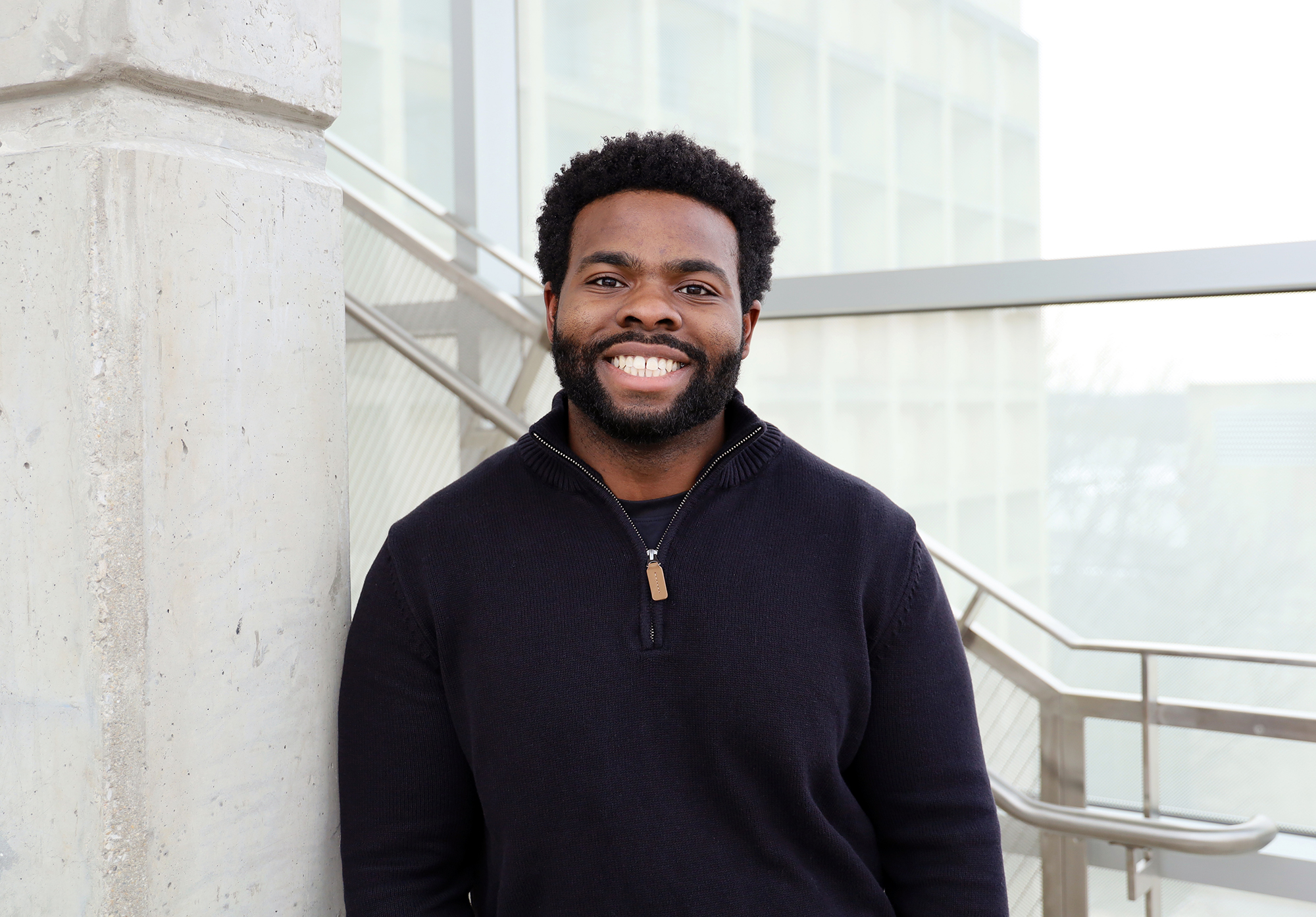Public Health Buckeyes: Najhee Purdy
Aspiring clinician eager to provide accessible care, address health disparities
By Kristen Mitchell

As a future family medicine doctor, Najhee Purdy knows he’ll be the first person his patients turn to with concerns about their health — and he recognizes health is much more than just physical symptoms. In the MPH-MD program, Purdy learns about how the social determinants of health and systemic factors impact individual well-being.
Purdy shares how his inspiring experiences working in community health and his College of Public Health education have shaped his postgrad plans.
What motivated you to pursue a MPH-MD education?
I didn’t think of pursuing an MPH until I shared my desire to have a broader impact on health care beyond the individual patient encounters I would have as a physician during a medical school interview. My interviewer suggested that an MPH would provide me with the tools to approach health from a population-level perspective and equip me with the knowledge to design and implement interventions that can have a far-reaching, preventive impact on communities.
I realized that combining the clinical expertise of an MD with the population health perspective of an MPH would allow me to address both the immediate needs of my patients and larger health challenges facing their communities.
What public health topics are you most passionate about?
Health policy. Policy is one of several tools we have in public health to address the root causes of health disparities and prevent adverse health outcomes. I am drawn to examining policies like the Affordable Care Act, which work to increase access to care and reduce disparities.
Additionally, I have become increasingly interested in understanding the public policy process itself, learning how to ensure all stakeholders have a meaningful role in policy development, implementation and evaluation.
What have you enjoyed most about being a CPH student?
One of the most rewarding experiences I have had was completing my applied practice experience at Columbus Public Health this past summer. I had the opportunity to work with the policy, research and evaluation team in the Center for Public Health Innovation. I was involved in conducting policy analyses for bills progressing through the statehouse and contributing to a project aimed at addressing mental health concerns from city residents. What made this experience more rewarding was learning about the diversity of backgrounds among my team members, and seeing how it enabled them to address a wide range of policy topics, such as food access, the built environment and mental health.
How do you think your public health education will shape your perspective as a clinician?
As a family medicine physician, I believe the knowledge I’ve gained through my MPH will shape the care I provide to patients. My MPH has taught me to approach patient care holistically by considering the non-medical factors that influence health. For example, I have learned to recognize how social determinants of health, such as economic instability, housing or access to education, may contribute to health challenges. This understanding allows me to not only address the immediate medical concerns, but also to identify and address underlying social conditions.
What are your goals for the future?
My primary goal is to serve historically marginalized communities. I am committed to providing comprehensive care to patients who face barriers to accessing regular health care, and I hope to collaborate with community-based organizations that play a vital role in supporting these patients.
I also aspire to collaborate with policymakers to develop and advocate for policies that increase access to care, reduce health care costs and address disparities in health outcomes. I envision transitioning into a leadership role within a public health agency at the local or state level where I can directly influence initiatives that improve health care access and equity.
What advice would you give other students interested in pursuing a MPH-MD?
Actively engage with community organizations and local or state public health agencies. Seeing public health in action is critical to understanding what a career in public health may look like. Working alongside public health professionals, you will gain a deeper understanding of how strong community relationships can drive meaningful health improvements through health promotion programs and other interventions. These experiences will not only deepen your understanding of public health, but also help you reflect on your own strengths and areas for growth.
About The Ohio State University College of Public Health
The Ohio State University College of Public Health is a leader in educating students, creating new knowledge through research, and improving the livelihoods and well-being of people in Ohio and beyond. The College's divisions include biostatistics, environmental health sciences, epidemiology, health behavior and health promotion, and health services management and policy. It is ranked 22nd among all colleges and programs of public health in the nation, and first in Ohio, by U.S. News and World Report. Its specialty programs are also considered among the best in the country. The MHA program is ranked 5th and the health policy and management specialty is ranked 21st.